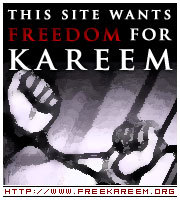The Unsung Hero of the Liberalisation Era
Devangshu Datta remembers the unsung hero of the liberalisation process kicked off in 1991 by the Congress govt led by PVN.
In the same fashion, Shibu Soren and his Jharkhand Mukti Morcha were the keystones of India's economic liberalisation. Manmohan Singh may have provided the intellectual impetus; Rao may have given the go-ahead. But if the JMM had refused to support Narasimha Rao's coalition in 1993, the liberalisation process would have stalled—perhaps, forever. That show of support from a gang of four (one of whom was too inebriated to really function) offered three vital years for the concept of de-licensing to be internalised and become a “fact on the ground” for the Indian economy. After that, despite the lunacies that have occurred over the next 13 years, there hasn't been a rollback. The other parallel between Sobieski and Soren is, of course, that neither cared two hoots for the pros and cons of the polities they respectively created and defended. They did it for monetary compensation. The motives hardly matter. If neither had put up his hands when he did, we would have lived in a very different world. |
Unfortunately today the hero has fallen from grace because he became stingy when it came to sharing the booty he made for being the hero. But then look at the brighter side - he still remains in the History books!
Of course, the JMM and its “Guruji” have created history all over again. No Indian Cabinet Minister had ever been convicted of murder until the axe fell on Shibu-dada. Again, this makes Guruji an important footnote in history. Jha's murder occurred many years ago. The tangled tale of blackmail that arose out of the disposal of the slush funds JMM received in 1993 is murky even by the standards of Indian politics. But the conviction of Guruji does send a message. It says that people in positions of power and privilege do not always get away with committing murder. They do quite often. But not always. And it warms the cockles of the heart to know that the Winter Session will be short of two (former) MPs serving jail sentences. It means democracy is still alive and well.[BS] |

No comments:
Post a Comment